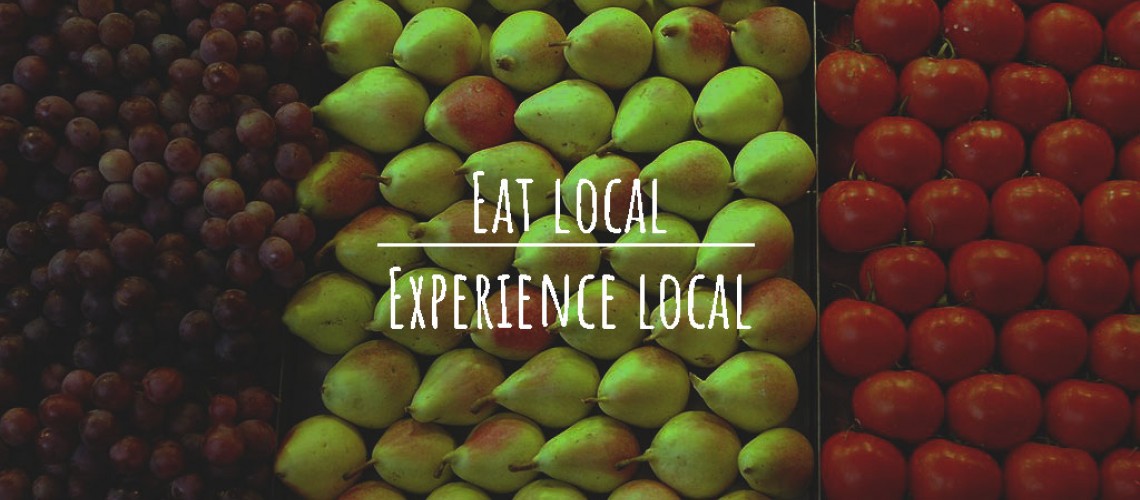Before grocery store chains began to appear in almost every place on earth people used to get their food from local producers. They offered a narrower range of products, but everything was fresh, seasonal and completely local.
Nowadays, in grocery stores people can find products coming from countries that may be far away from the one in which they are purchasing the food. This means higher quantity, but not always higher quality. Thus, the question is ‘do we really need to choose among so many products to eat well and healthy?’
It is true that foreigners may want to eat some meals coming from their own country, which they can find in the grocery stores, but is it not the goal of ‘globalization’ to adapt to the different cultures?
The benefits of eating locally are a lot. First of all, the certainties you have in purchasing a local product. In fact, you exactly know its origin and how it is produced. Furthermore, local producers tend to use less pesticides, which is obviously good for your health.
When purchasing a local product, you know also that it is completely seasonal, this means a lot, because we are going to eat something that the Nature has offered to us and more than this, it is suited to the climate as well as to our body. Seasonal products provide what we really need to nourish.
The practice of eating locally should be applied also during travels: people should experience how a different culture eats, this requires open-mindedness, but also willingness to try something new and different. It is important to be conscious that what the local community offers is the best we can find in that place and in that moment. If you want to taste something traditional and local during one of your journeys, you should definitely use platforms like Ijendu (http://ijendu.com/), Eatwith and Withlocals, which give the possibility to eat with locals. This is a great opportunity to get in touch completely with a foreign culture and to live a unique experience.
A local product, whether we are in our own country or in a foreign one, will always have its full flavor. It won’t taste the same way anywhere else but in its origin country. For example, a pineapple in Canada won’t taste as a Brazilian one or the Italian mozzarella is completely different from the mozzarella sold in the US. This also means that all the nutritional properties of that specific product are complete and at their highest levels. Consequently, local products actually help our body to be healthy and strong, preventing potential diseases linked to nutrition.
Finally, from the economic point of view, eating locally has benefits not only for our expenditures, but also for the local community. In fact, local products are more likely to be cheaper than the ones sold in grocery stores and purchasing them gives a help in sustaining the small producers, who are threatened by big chains.
To summarize, even if purchasing local products may mean less quantity, people will gain in quality for sure. In addition to this, a healthy diet based on local products has influence not only on the body, both outwardly and inwardly, but also in our mind, as Juvenal said ‘Mens sana in corpore sano’ (‘Healthy mind in healthy body’).


